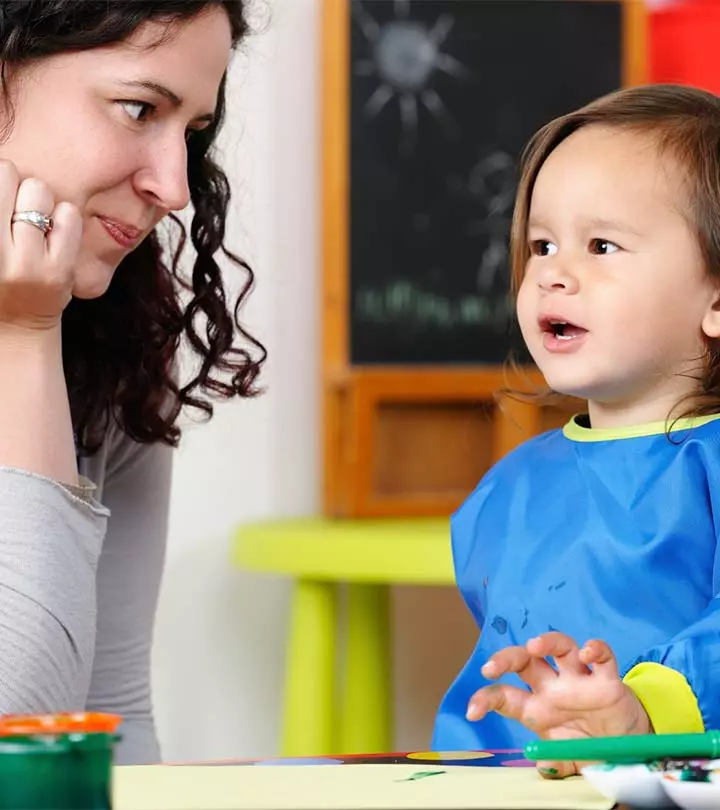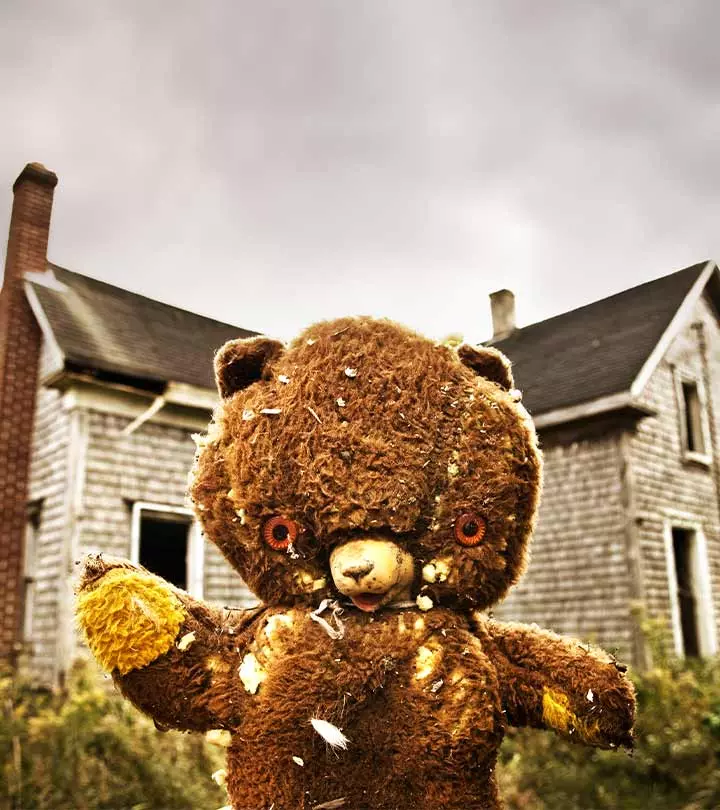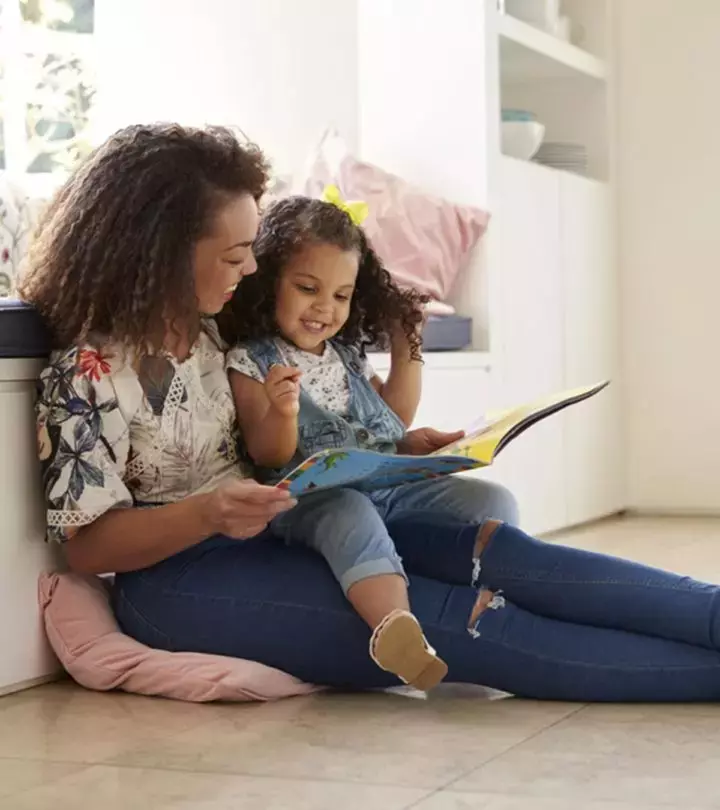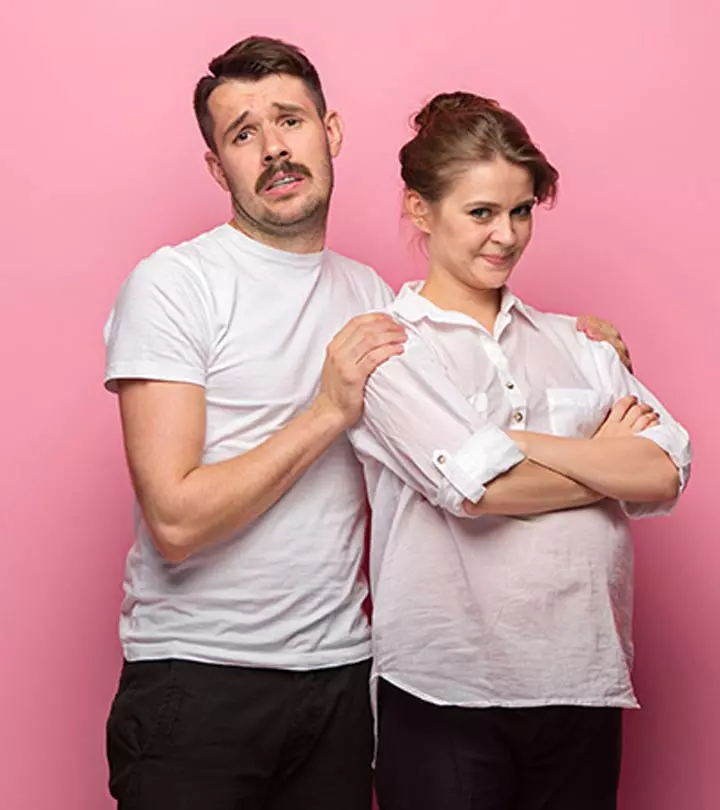

Image: iStock
Being multilingual is good for many reasons – work, travel, socializing and at times even to show off! Did you know that about 75% of the world is multilingual? Barring most of the western cultures where multilingualism is the norm, the rest of the world speak two or more languages. Many children grow up speaking the native language, learn the language of the neighboring tribe and still learn the language that is hailed as the official or working language of his country of residence or the country of work. But when should your child start learning different languages? Is it good to expose your under-five child to several languages at one time?
Multilingualism May Not Confuse Your Child
Consider a country like Canada where being multilingual is the norm. A child is raised speaking, at least, two or more languages either at home or school. It quite contradicts the earlier held the common belief in major monolinguistic countries that you would be confusing your child by teaching him two or more languages. With passing times, that sort of belief has become a myth and more of a wrongly held notion. Your child’s brain can process two or more languages without altering the dominant language, say a native language or that which is mostly spoken at home.
Between 3 And 5 Is The Best Age To Learn A New Language
Now consider the fact that between the age of 3 and 5, your child’s brain is ready to assimilate and process more information than you think he is capable of. Your child uses the same brain tissues that store the dominant language to learn a new language. Adding one more language will not load his brain. But that is if he has already been subject to a prolonged period of interaction and consistent exposure. It purely depends on the parents, the school, and the environment. It will not always be talking. Activities like reading him stories in a different language will also be helpful in learning a new language.
Is it Good To Learn One Language At A Time
Learning more languages at one time makes it easier for both the child and the parents to gather words more quickly. Although learning one language at one time may be a good idea to master a language, it may not leave room for more productivity when it’s time to learn a new language. For that matter, your child must have also crossed the age of 5 or 6. And as we grow up our minds start responding to the operational needs as opposed to the need to learn a language. This is why it’s good to learn languages while young.
The Risk Of Mixing Up The Languages
It is likely that your child will do that. It will be a passing phase. You must remind him to use the more closer word. That way he will remember not to repeat it. It’s a temporary phenomenon, and as your child grows, the tendency to use a mixed language will disappear. Moreover, your child would be more receptive to the societal demands and norms as he grows up. He will understand the responsibility to speak with clarity and use the appropriate words. But a great deal of responsibility also lies on your shoulders to correct your child as and when required and also marking off the wrong or mixed words you might be using in front of your child.
Don’t Overestimate Your Child’s Ability
If you insist you raise your child speaking one language and that he learns other languages at a later stage, simply because you think ‘he will pick it up in no time,’ you may not be always right. There could be a possibility for the opposite too. Fred Genesee, a professor of psycholinguistics at McGill University in Montreal says, “Children need to be exposed to a different language for at least 30 percent of their waking hours to become bilingual. Learning a second language is simple for children, relative to adults. But it won’t happen overnight.”
Not That Your Child Cannot Learn As A Grown Up
But it might just be more time-consuming, more effortful, and he may need loads of motivation and the right environment to learn a new foreign language.
Can Your Child Also Read And Write In Several Languages
Yes, of course! Multilingual children can read and write languages better than their friends who speak only one language. Such children usually have a better linguistic understanding.
Is A Pediatrician’s Opinion Recommended
If your pediatrician has identified a problem with your child, then it’s wise to wait before you can introduce your child to a new language. Otherwise, there are not many doctors who are trained in the domain of multilingualism for children, and their opinions must be just as good as that of someone who is not medically not trained.
Watch this video for more information:
Should you be a monolinguistic person, or if you have a family heritage of speaking or sticking to one language, ask your child to take the challenge, and explore a new language. You never know where it could take him!
Community Experiences
Join the conversation and become a part of our nurturing community! Share your stories, experiences, and insights to connect with fellow parents.












